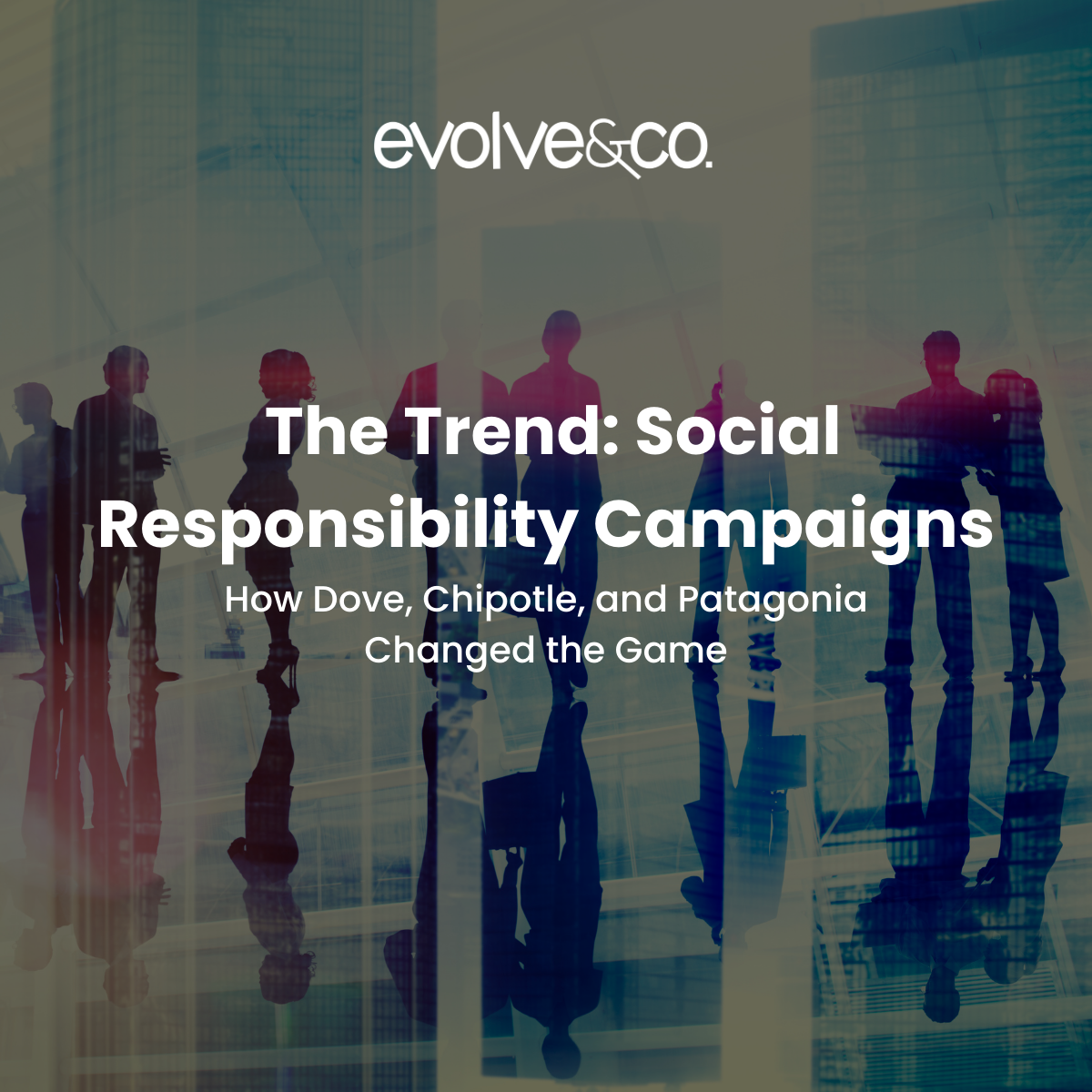Since the advent of the Digital Age, many corporations have been rapidly evolving to keep up with the ever-changing landscape of modern society. In large part due to the growth of the internet and social media alike, there is now an interconnectivity and social awareness unlike any generation has experienced before.
Concepts such as corporate social responsibility, green marketing and demarketing have become prominent components of a healthy business plan. With public interest becoming more powerful, and corporate actions being held more accountable, many marketing campaigns have begun setting their own self-interest aside to better serve society as a whole.
In light of this, here are three iconic social marketing campaigns that encapsulate modern marketing strategies:
1) Dove: Real Beauty.
Dove is a beauty company that specializes in personal care products. According to Dove on their own website (2019), “We’re on a mission to help the next generation of women realise their full potential” (Dove, Self-Esteem Project). Dove’s Real Beauty Campaign has been in effect since 2004, attempting to redirect the value perceived in beauty products to the individuals who use them.
Photo by Omar Lopez on Unsplash
Dove emphasises that “6 out of 10 girls are so concerned with the way they look that they opt out of important activities” (para. 2). Unrealistic beauty standards and the pressure women endure to meet these expectations is an issue Dove is undoubtedly taking seriously, uplifting the self-esteem of millions of young adults worldwide.
This degree of commitment to their consumer’s well-being has created a brand that many can endearingly trust.
2) Chipotle: Back to the Start.
This 2011 campaign by the Mexican restaurant chain Chipotle featured a captivating commercial promoting sustainable farming. It illustrates a disheartening juxtaposition of an organic, open range farm, with a dreary mechanical factory.
According to New York Times journalist Elizabeth Olson (2012), Chipotle’s founder, Steve Ells, takes great pride in using all natural and organic ingredients. He even created the Chipotle Cultivate Foundation, in which all financial proceedings from the commercial will be donated to (para. 3). Chipotle has taken tremendous initiative to promote awareness for this cause, as well as incorporating it into their business model.
Photo by Priscilla Du Preez on Unsplash
Laurie Schalow, Chipotle’s CCO, adds that “Back to the Start deviated from traditional ads. [It] tells a story that roots back to our commitment to serving food with integrity and conveys that message in a fun way” (as cited in PRWeek, 2018). The message that Chipotle cares about societal prosperity, and practices sustainable agriculture themselves, was well received by an audience of millions during the 2012 Grammy Awards.
3) Patagonia: Don’t Buy This Jacket.
In 2011, clothing company Patagonia published a seemingly counterintuitive advertisement on The New York Times. Its headline: “Don’t Buy This Jacket”.
This was in reference to the company’s own product, reasoning on their website that “to lighten our environmental footprint, everyone needs to consume less. Businesses need to make fewer things but of higher quality. Customers need to think twice before they buy” (Patigonia, Don’t Buy This Jacket). This extreme level of transparency and activism by a company is mind-boggling for many. But it certainly emphasizes Patigonia’s unparalleled commitment to a vital social cause.
Photo by Noah Buscher on Unsplash
The advertisement specifically urges consumers to “reduce”, “repair”, “reuse” and “recycle”. This strategy is also known as demarketing: the use of advertising to decrease demand for a product that is in short supply (Marriam-Webster, 2021). Demarketing has been increasingly popular in the past decades, as a useful method for preserving natural resources.
Following Patigonia’s demarketing campaign, sales actually rose 30% according to Bloomberg News (as cited in Investopedia, 2020). Its profound message certainly made a positive influence on consumers.
Despite these three campaigns sacrificing profit for the sake of corporate social responsibility, the brands attracted awareness to both themselves and their causes. By allocating both time and money into the needs of their consumers, these companies show that promoting a brand’s image and reputation is priceless.
Sources
Dove. (2019, November 01). Dove Self-Esteem Project. Retrieved January 27, 2021, from
https://www.dove.com/us/en/stories/about-dove/dove-self-esteem-project.htm
Merriam-Webster. (n.d.). Demarketing. In Merriam-Webster.com dictionary. Retrieved January
26, 2021, from https://www.merriam-webster.com/dictionary/demarketing
Olson, E. (2012, February 10). An Animated Ad With a Plot Line and a Moral. Retrieved January
27, 2021, from https://www.nytimes.com/2012/02/10/business/media/chipotle-ad-
promotes-sustainable-farming.html
Patagonia. (2020, November 25). Don’t Buy This Jacket, Black Friday and the New York Times. Retrieved January 27, 2021 from https://www.patagonia.com/stories/dont-buy-this-jacket
-black-friday-and-the-new-york-times/story-18615.html
PRWeek. (2019, November 21). The best 20 PR campaigns of the past two decades. Retrieved
January 27, 2021, from https://www.prweek.com/article/1493241/20-best-pr-campaigns-
past-two-decades
Thangavelu, P. (2020, February 3). The Success of Patagonia’s Marketing Strategy. Retrieved
January 27, 2021, from https://www.investopedia.com/articles/personal-finance/070715/
success-patagonias-marketing-strategy.asp#citation-5

